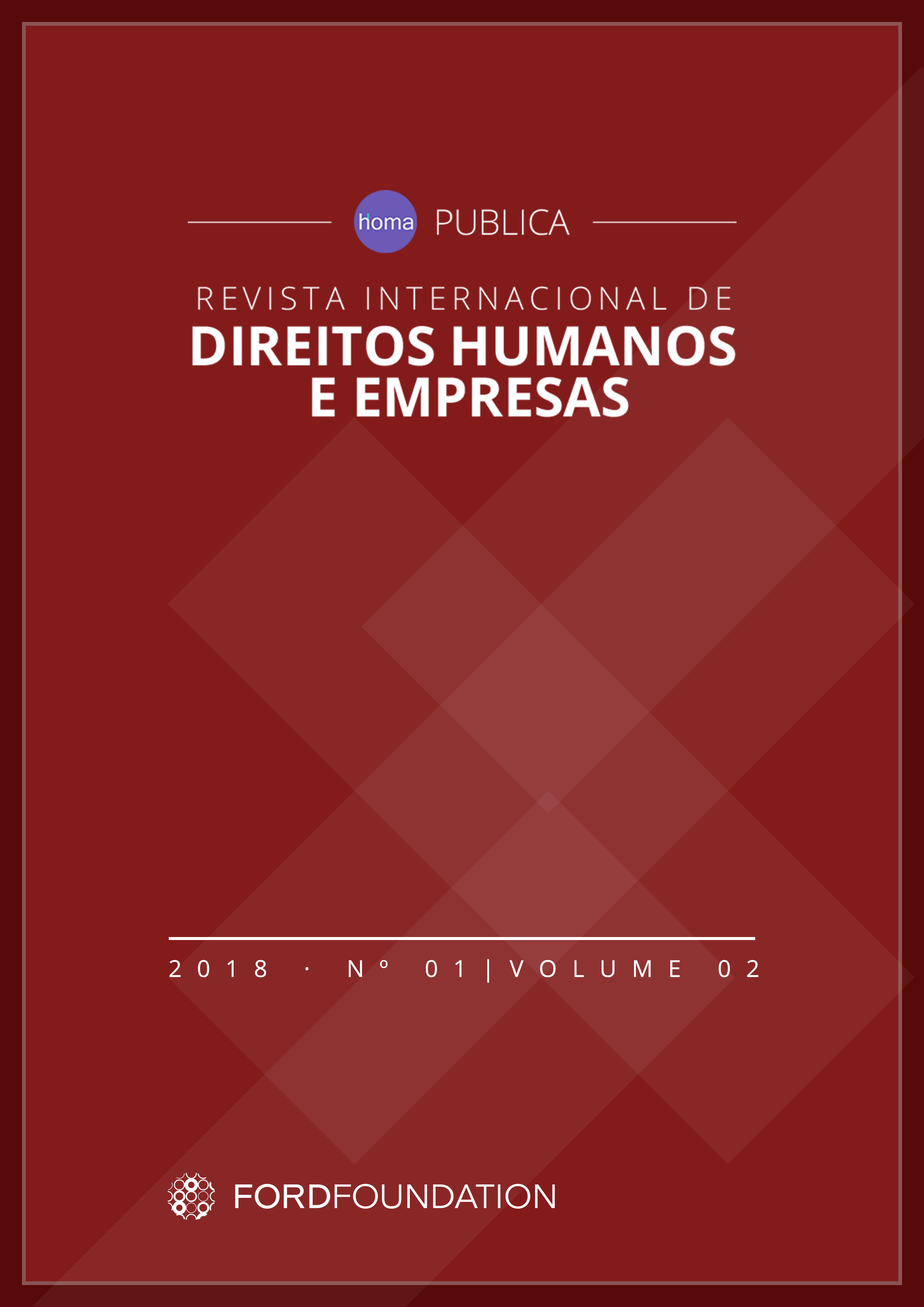Publicado 2018-01-31
Palavras-chave
- Colonialismo,
- Neoliberalismo,
- Sul Global
Como Citar
Resumo
Ao remontar às raízes que interligam os territórios latino-americanos, sobretudo o brasileiro, às lógicas operativas do capitalismo transnacional, nos aliamos a tese de Quijano, segundo a qual, a globalização em curso é, em primeiro lugar, a culminação de um processo que começou com a constituição da América e do capitalismo colonial/moderno e eurocentrado como um novo padrão de poder mundial. Nesse cenário, com o avanço do neoliberalismo e as grandes ondas de privatização, as corporações transnacionais se tornam uma das mais poderosas instituições do nosso tempo, com o apoio estratégico dos Estados. Um “mercado mundial” formado por um entrelaçamento de coalizões de entidades públicas e privadas promovem diferentes interesses de poderes estatais e econômicos, consolidando um “governo empresarial”, que exerce papel central na exploração e transferência das riquezas do Sul global para o Norte. Paralelamente a este processo, violações de direitos humanos causadas por estas empresas passam a ser cada vez mais contestados pela sociedade civil e por fóruns internacionais, objetivando romper com que vem sido chamado de “arquitetura da impunidade”, a partir da imposição de termos como governança e autorregulação. A partir de pesquisa bibliográfica, este artigo pretende analisar como operam as lógicas coloniais de normatização da atuação dessas empresas no Sul Global.
Downloads
Referências
BRENNAN, B.; BERRÓN, G. 2012. Hacia una respuesta sistémica al capital transnacionalizado. América Latina en Movimiento, Quito, ALAI, n. 476, jun. 2012. (Capital transnacional vs Resistencia de los pueblos). Disponível em: http://alainet.org/publica/476.phtml. Último acesso em: dezembro de 2016.
CARVALHO, Marcos Cesar Araujo. A Reconfiguração das relações de poder na américa latina: recolonização e resistências em um contexto neoliberal. In Revista Electrónica de Geografía y Ciencias Sociales.
Universidad de Barcelona. ISSN: 1138-9788. Depósito Legal: B. 21.741-98
Vol. XVI, núm. 418 (61), 1 de noviembre de 2012.
DARDOT, Pierre; LAVAL, Christian. A nova razão do mundo: ensaio sobre a sociedade neoliberal. Trad. Mariana Echalar. 1ª ed. São Paulo: Boitempo, 2016.
DELEUZE, Gilles. Post-Scriptum sobre as sociedades de controle, In Conversações, 1972-1990, São Paulo: Ed. 34, 1992 [1990], 219-226.
DELUCHEY, Jean-François Yves. Sobre Estratégias e Dispositivos Normativos em Foucault: 1. Considerações de Método. Revista da Faculdade de Direito da UFG, v. 40, 2016, p. 175-196.
DOUZINAS, Costa. O fim dos direitos humanos. São Leopoldo: Unisinos, 2009.
DOUZINAS, Costa. Seven Theses on Human Rights: (7) Cosmopolitanism, Equality & Resistance. In. Critical Legal Thinking. 2013. Disponível em: http://criticallegalthinking.com/2013/06/13/seven-theses-on-human-rights-7-cosmopolitanism-equality-resistance/. Acesso em 20/12/2016.
FEENEY, Patricia. A Luta por Responsabilidade das Empresas no Âmbito das Nações Unidas e o Futuro da Agenda de Advocacy. SUR. Revista Internacional de Direitos Humanos, v.6, n.11, p. 175-191, 2009.
FILHO, Nelson Siffert; SILVA, Carla Souza. As Grandes Empresas nos Anos 90: Respostas Estratégicas a um Cenário de Mudanças. In: GIANBIAGI, Fábio Giambiagi; MOREIRA, Maurício Mesquita (Org.). A economia brasileira nos anos 90. 1. ed. Rio de Janeiro: BNDES, 1999.
FOUCAULT, Michel. Nascimento da Biopolítica. São Paulo: Martins Fontes, 2008, “Aula do 14 de março de 1979”, p. 297-327.
GROSFOGUEL, Ramón. Para descolonizar os estudos de economia política e os estudos pós-coloniais: Transmodernidade, pensamento de fronteira e colonialidade global, Revista Crítica de Ciências Sociais [Online]. 80 | 2008, colocado online no dia 01 outubro 2012, criado a 11 agosto 2017. URL: http://rccs.revues.org/697 ; DOI : 10.4000/rccs.697
HOMA- UFJF. Tratado sobre Direitos Humanos e Empresas: duas questões principais. 2015. Disponível em: http://homacdhe.com/wp-content/uploads/2015/11/Artigo-Tratado-sobre-Direitos-Humanos-e-Empresas-Duas-Quest%C3%B5es-Principais.pdf. Acesso em 29/12/2016.
LIPPMANN, Walter. The permanent new deal. In The New Imperative. Londres: Macmillan. 1935.
MATHIS, Adriana de Azevedo. Impactos da mineração e direitos humanos em Carajás/Pará. In. Homa Publica: Revista Internacional de Direitos Humanos e Empresas Vol. 01 (Novembro de 2016) Juiz de Fora: Homa, 2016. Págs. 122-139.
PUELLO-SOCARRÁS, José Francisco. Ocho tesis sobre el Neoliberalismo (1973-2013). In. O neoliberalismo sul-americano em clave transnacional: enraizamento, apogeu e crise. Organizado por Hernán Ramírez. – São Leopoldo: Oikos; Editora Unisinos, 2013. Págs. 13-57.
QUIJANO, Anibal. Colonialidad del Poder, eurocentrismo y America Latina. Disponvível em http://www.clacso.org/wwwclacso/espanol/html/libros/lander/10.pdf. Acesso em: 20 de dezembro de 2016.
RUGGIE, John G. A UN Business and Human Rights Treaty? 2014. Disponível em: www.hks.harvard.edu/m-rcbg/CSRI/UNBusinessandHumanRightsTreaty.pdf. Acesso em 01/01/2016.
SANTOS, Boaventura de Sousa. Para além do pensamento abissal: das linhas globais a uma ecologia de saberes. Novos estudos. - CEBRAP, São Paulo, n. 79, p. 71-94, Nov. 2007. Available from http://www.scielo.br/scielo.php?script=sci_arttext&pid=S0101-33002007000300004&lng=en&nrm=iso. Acesso em 21 Dec. 2016.
SELVANATHAN, Puvan J. The Business and Human Rights Treaty Debate: Is Now the Time. The Kenan Institute for Ethics. Janeiro de 2015.
UGALDE, Koldo. Los Acuerdos Marco Internacionales (AMIs) ¿Oportunidad para reequilibrar poder frente a las empresas transnacionales (ETNs)? Una visión desde la EU. In. Empresas transnacionales en América Latina. Análisis y propuestas del movimiento social y sindical. Coordinación: Juan Hernández Zubizarreta et. al. Junio de 2013. p. 173-185
WALSH, Catherine. Development as Buen Vivir: Institutional arrangements and (de)colonial entanglements. Development, 2010, 53(1), págs. 15–21.

